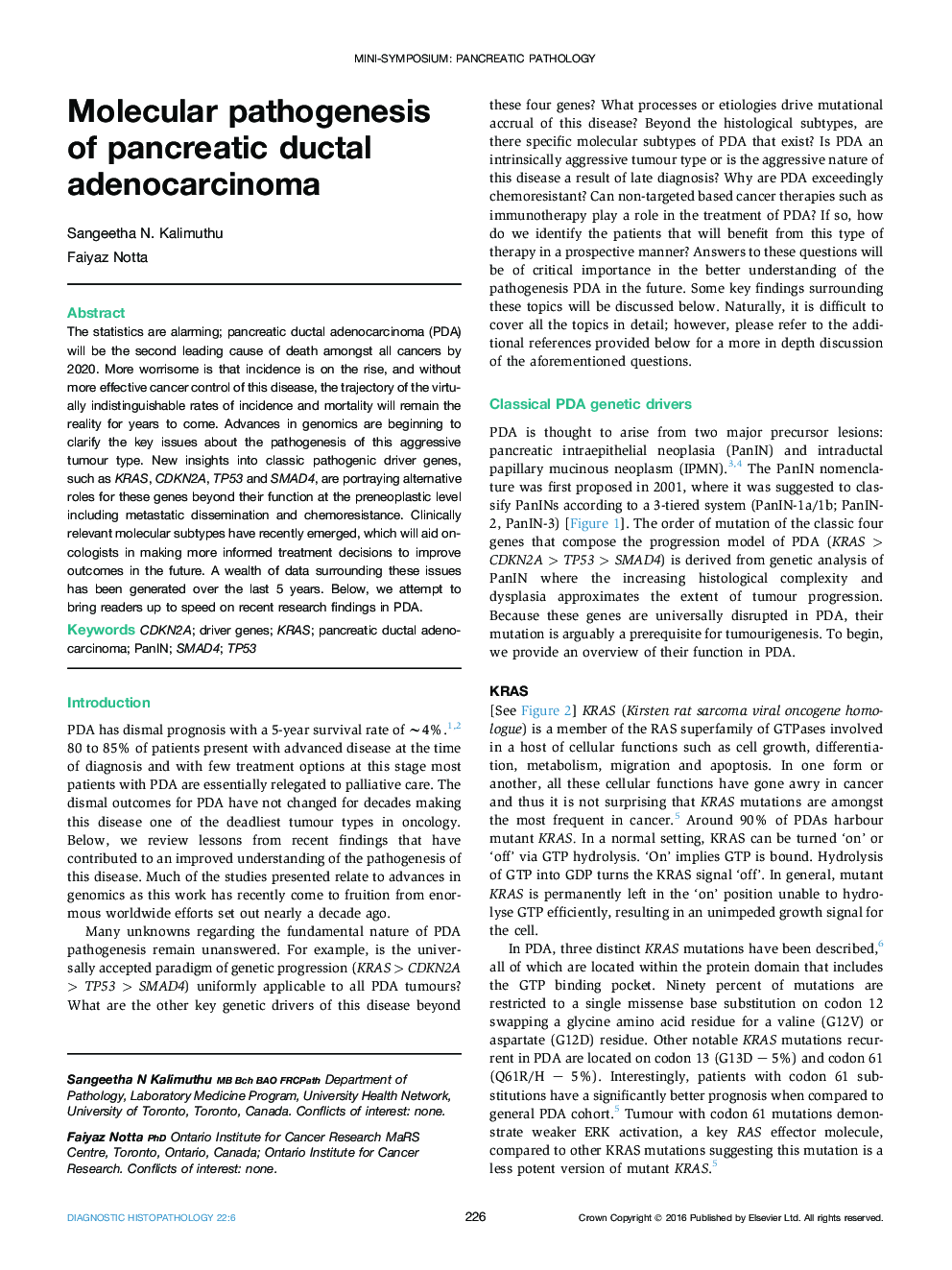| Article ID | Journal | Published Year | Pages | File Type |
|---|---|---|---|---|
| 4130954 | Diagnostic Histopathology | 2016 | 10 Pages |
The statistics are alarming; pancreatic ductal adenocarcinoma (PDA) will be the second leading cause of death amongst all cancers by 2020. More worrisome is that incidence is on the rise, and without more effective cancer control of this disease, the trajectory of the virtually indistinguishable rates of incidence and mortality will remain the reality for years to come. Advances in genomics are beginning to clarify the key issues about the pathogenesis of this aggressive tumour type. New insights into classic pathogenic driver genes, such as KRAS, CDKN2A, TP53 and SMAD4, are portraying alternative roles for these genes beyond their function at the preneoplastic level including metastatic dissemination and chemoresistance. Clinically relevant molecular subtypes have recently emerged, which will aid oncologists in making more informed treatment decisions to improve outcomes in the future. A wealth of data surrounding these issues has been generated over the last 5 years. Below, we attempt to bring readers up to speed on recent research findings in PDA.
